In 2009 Steven Porfiri was accused of never having played a video game before by someone on a GameFAQs message board, and the insult has haunted him ever since. Now, as the Senior Games Writer for Merry-Go-Round Magazine, he’s finally been given a platform to prove that not only has he been playing video games, he writes about them as well. I Played a Game Once is an inside look into what he is playing, and how it has any bearing whatsoever on our current moment. It’s basically like Carrie Bradshaw’s column but with more discussions about save-scumming.
Every early creative writing class advises students to “write what they know,” and because of this you get a lot of stories and meditations that are more than kind of specific to the author. Video games aren’t that much different, especially when it comes to indie games. AAA titles aren’t immune to this either, and more than a few think pieces have been pounded out wondering exactly why so many games involve being a dad or something.
For one or more reasons, I’ve recently found myself gravitating toward games about breakups, and how creators represent intensely personal events in an interactive medium that is, in theory, supposed to be fun. Breakups aren’t fun! They’re not great! The dissolution of any really positive relationship—and even negative relationships—rarely come with a light and airy feeling, more like a heavy plodding that settles in your chest and mind, and definitely isn’t what you want to evoke when you’re trying to come up with a neat and cool experience.
A game that emphasizes that plodding intensity is one that I encountered years ago, but never really found a reason/way to check it out until recently. I came across APARTMENT: A SEPARATED PLACE (Or A·PART·MENT as it’s stylized) at my first Indiecade, and while I don’t want to think about it, that was in 2015. APARTMENT was fully released to Steam in 2020, on Valentine’s Day, no less. It’s a walking simulator in the truest sense of the phrase, putting you in the soft footsteps of a man navigating the remains of his relationship by exploring what remains of his apartment.
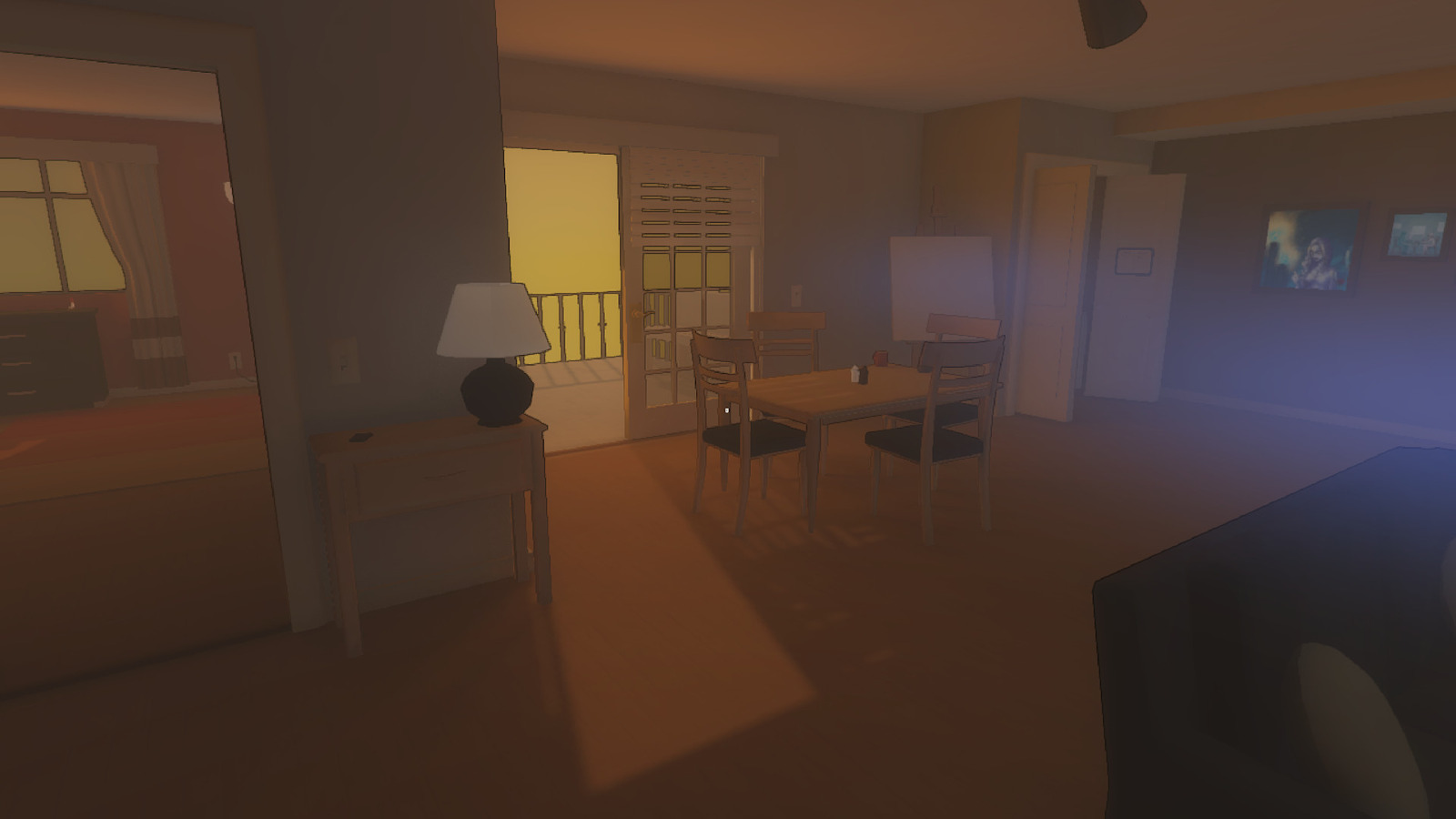
A 1BR with a balcony and in-unit washer and dryer? Is there a unit available…?
While it’s very on-the-nose, APARTMENT does a good job of representing what it’s like to be suddenly overcome by a memory, caused by something relatively innocuous. Your character, Nick, is a cartoonist that has just been dumped by Madison, his girlfriend of four years. You’ll plod through your apartment, focusing on objects that bring back specific memories, as Nick compartmentalizes them into moments from a comic strip. It’s an uncomfortably accurate representation of the desire to autopsy one’s relationship; the need to look at the good, the bad, and the important moments, whether to relive the good times, identify what went wrong, or simply to grip these moments close to you and feel them burn as you know you’ll never experience it again.
One of the most important things to have immediately after a breakup is a sense of perspective, and developer The Elsewhere Company punctuates Nick’s ruminations with explorations of the relationships of his neighbors in the complex. A divorced dad tries to reconcile with his daughter, a widow deals with loneliness, and a newlywed grapples with her own choices. Going through each of your neighbors’ stories unlocks a new facet of Nick’s own relationship, and while they don’t provide an immediate context or relativity between them, exploring them is necessary to advance through the game.
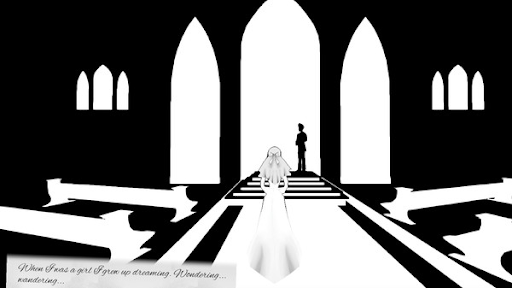
Listen, at least you’re not a lonely old woman plagued by memories of her deceased soulmate
For each segment of Nick and Madison’s story you uncover, the comic is placed on Nick’s wall, which feels… unhealthy, but by the end of the experience one comes to learn that by entering into a relationship with anyone, or even being perceived by anyone, we often leave pieces of ourselves behind, certain marks or remnants that we can’t truly get rid of. Sometimes we can, but when we can’t, we can use what’s left behind to help give the past context, and move forward with the rest of our lives. APARTMENT is a slow, trudging experience, but man that is what recovering from a breakup is like, and there’s not much you can do to get around it.
But enter SAYONARA WILD HEARTS. Released in 2019 by Swedish developer Simogo, and published by Annapurna Interactive (“Seth Rogen did this”), it’s essentially an interactive synthpop album. It’s less of a story and more of a surrealist representation of a breakup, the steps between the moment you know it’s over and the sense of desolation you feel realizing you’re more alone than you’ve been in a long time.
I guess you would call SAYONARA WILD HEARTS a rhythm game, which would make sense because as time went on the levels got more difficult than I anticipated. It probably didn’t help that I took an edible beforehand to help myself “appreciate” the neon-streaked worlds inspired by the aesthetics of synthwave and Euro club pop. And I did enjoy them, don’t get me wrong, it was very satisfying to play as the game’s spurned lover transformed into an alter ego known as The Fool (an appropriate name, I felt, given the circumstances) doing battle with Arcana-inspired villains in a quest to heal her broken heart. Truly, what’s more cathartic than a sword fight on a cyber cycle driving at 200 miles per hour?
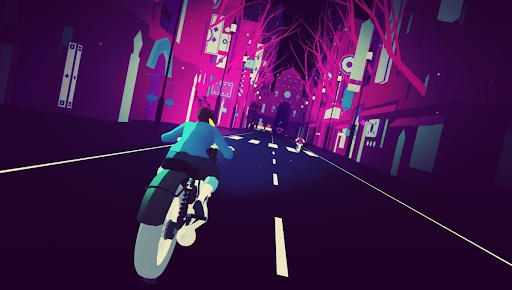
We all cope in our own ways
But when I play games like this that are designed to invoke emotions or tell a specifically-timed story I personally worry about how jarring it becomes when player error gets in the way. Players who collide with a tree or miss a jump are immediately reset to a point a few measures earlier to try it again, with a relieving promptness reminiscent of HOTLINE MIAMI, another game about breakups but mostly breakups between Russian mobsters and their limbs. Eventually, Queen Latifah, who narrates the game, will gently inform the player that they can skip a particular part if they’d like, but it got to a point for me where her calming suggestions began to feel condescending.
SAYONARA WILD HEARTS looks at the fracturing of a relationship and acknowledges that all of it is bad, but narratively encourages the character—and even in this case the player—that it’s the start of a new adventure. And not exactly a fun adventure, either, one that is fraught with giant wolves, shifting realities, and one-eyed death machines looking to shatter you (I’m pretty sure those are somewhat metaphorical, but I’m not 100%). Still, according to the game, you’ll eventually defeat your demons, restore balance to the universe, and find the strength to begin again.
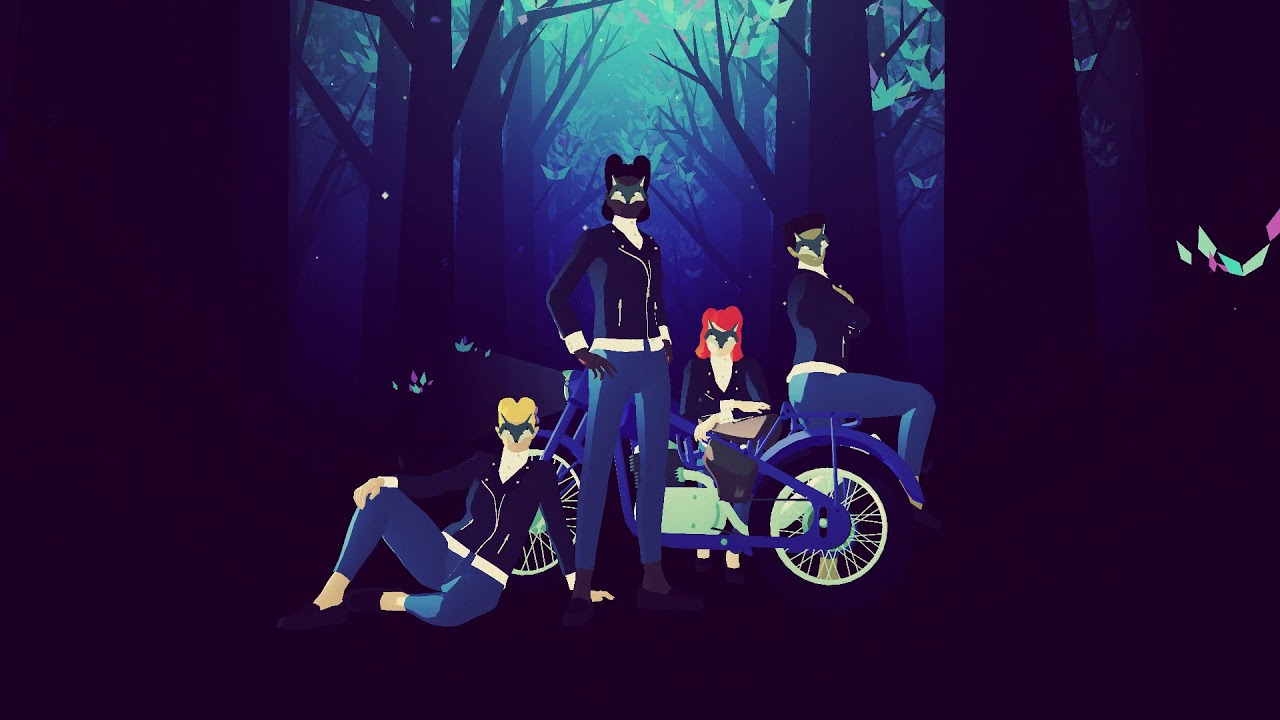
This time with more leather jackets and wolf masks
I cannot promise that I’ll be having spiritual revelations in this column every single week, because that sounds absolutely exhausting, but I think this is a good place to start. It’s somewhat rare that people play games with any purpose in mind, but these particular games I played for a reason; I needed an avenue to work through a particular set of feelings and felt these games were in my orbit for a reason. While I can’t prescribe pieces of media for spiritual ailments, I feel like they did provide necessary places for me to think about the media I choose to take in and interact with, and I think that if we at Merry-Go-Round advocate for anything it’s a more conscientious examination of how we look at media and why we do choose to take in what we do.


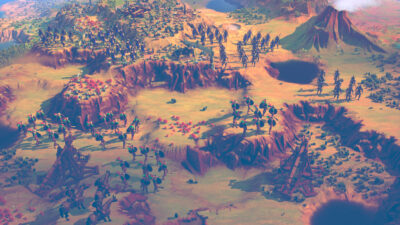
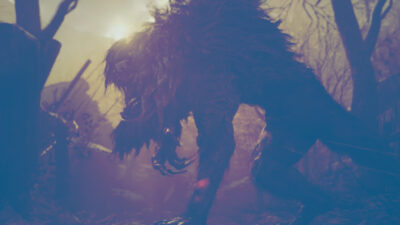
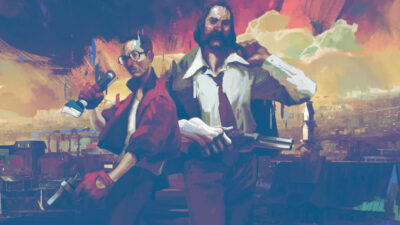
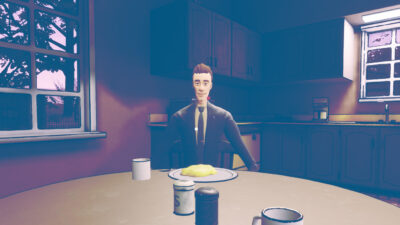
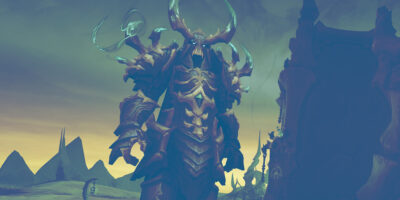
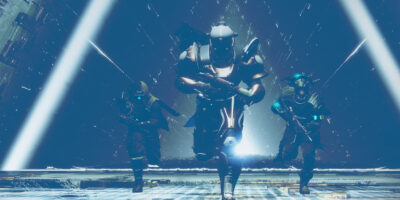
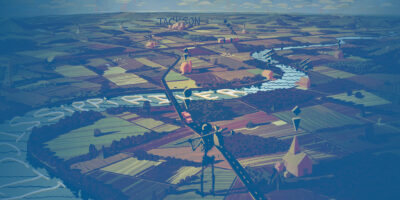

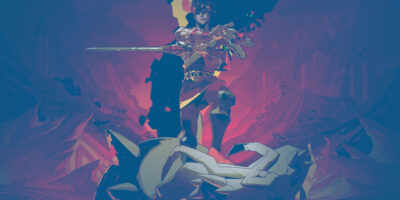
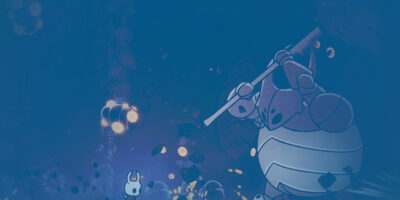


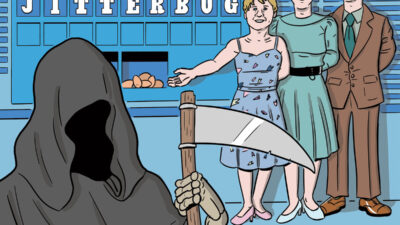

Comments